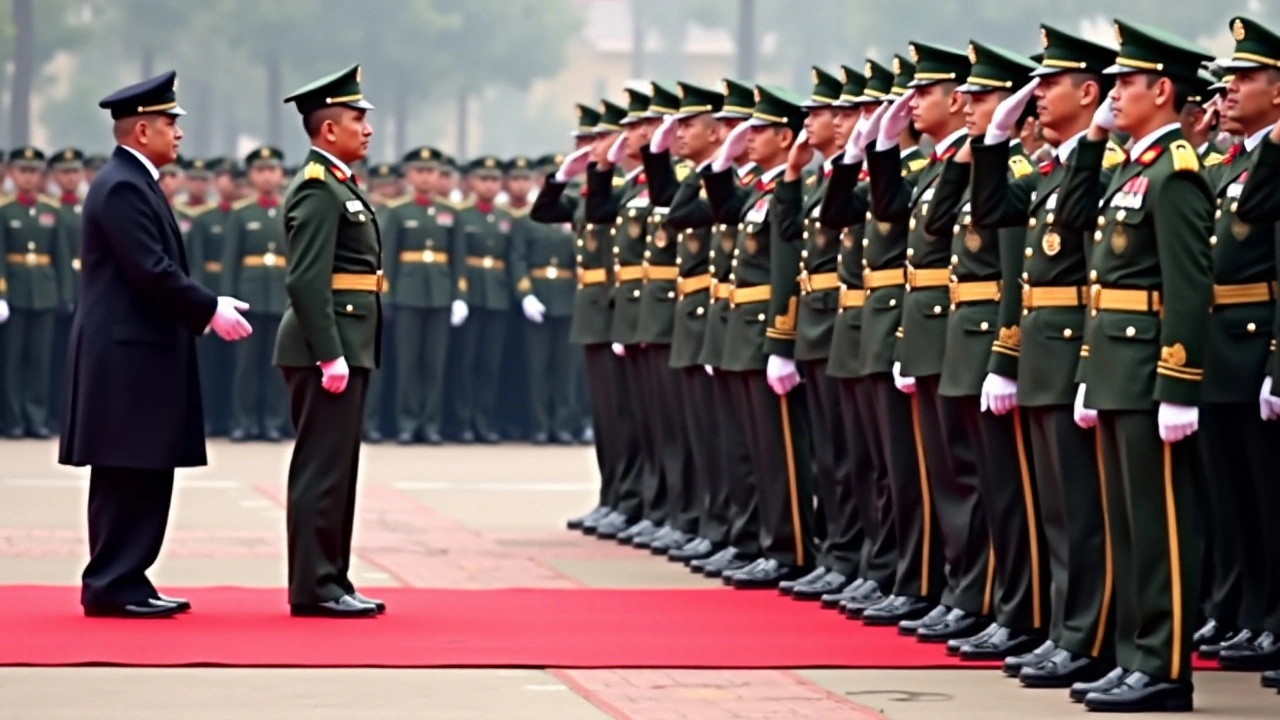Unmasking an Unlikely Alliance: North Korean Troops in Ukraine
The complex web of alliances and enmities that encircle global conflicts has recently expanded in a rather unexpected direction. In an astonishing revelation, South Korea's National Intelligence Service (NIS) has identified the presence of North Korean military officers fighting alongside Russian forces in the volatile Donetsk region of Ukraine. This development has not only caught geopolitical analysts by surprise, but also raised a myriad of questions regarding the motivations and implications of this transcontinental deployment.
Through meticulous intelligence gathering, the NIS brought to light information that could potentially reshape the understanding of North Korea’s international military engagements. It is reported that a select group of North Korean officers, allegedly from the elite special units, have been dispatched to Ukraine. Their mission? To bolster the efforts of Russian troops amidst the ongoing conflict that continues to escalate tensions within Europe.
This report starkly contradicts previous denials issued by the Russian ambassador to North Korea, Alexander Matsegora, who swept aside any notions of North Korean troop involvement. However, South Korean intelligence, with its longstanding focus on North Korean activities, provides a plausible narrative that reflects a strengthening of ties between Pyongyang and Moscow.
Tensions on the Korean Peninsula
The surprising association between North Korea and Russia is reverberating strongly across the Korean Peninsula, a region already fraught with its own geopolitical tensions. South Korea has expressed grave concerns over the presence of North Korean officers so far from home, emphasizing the fears of potential military escalation that could involve Southeast Asia.
Indeed, this unorthodox military support from North Korea marks the first instance of its armed forces participating in a conflict far removed from its own borders. Analysts believe that this move is more than just a demonstration of military collaboration—it signals a burgeoning alliance that could have far-reaching consequences for regional and global stability.
North Korea, a nation known for its isolationist stance and secretive military practices, has historically confined its military operations to matters directly involving the Korean Peninsula. This unexpected involvement in the Eastern European region not only showcases North Korea's willingness to extend its military reach but also suggests a strategic partnership forming between these two nations amidst global sanctions and isolations.
Implications for International Relations
The ramifications of North Korea’s presence in the Ukraine conflict are manifold. Firstly, it suggests that North Korea is keen on expanding its strategic partnerships, particularly with nations that like itself, stand in opposition to Western influence. Russia's influence as a powerful ally is undoubtedly a tantalizing prospect for North Korea, offering cooperation that spans both military and economic realms.
Moreover, this unexpected alliance highlights a potential deviation in the global military landscape. The ramifications of North Korean officers being involved in Eastern European skirmishes may force the hand of Western powers to reevaluate their policies and strategies concerning both Russia and North Korea. Such involvement undeniably underscores a unified stance against what they perceive as common adversaries.
Military experts and international diplomats will undoubtedly scrutinize these developments closely. The moves by North Korea speak volumes of the geopolitical shifts that are continuing to redefine alliances and potentially redraw battle lines in the intricate world of international politics.
Future Prospects and Challenges
As Pyongyang ventures beyond its familiar domain, the challenges and opportunities it seeks are layered with complexity. While it solidifies ties with Moscow, potentially leveraging this relationship to mitigate economic downsides due to sanctions, it simultaneously risks international backlash. The possibility of further diminishing relations with neighboring South Korea and other nations aligned with Western policies presents significant risks.
The narrative of North Korea's involvement raises inevitable questions about accountability and support for conflicts beyond one's national borders. The response from the international community remains to be seen, but what is clear is that stakes have been raised in the intricate chess game of global politics. It remains to be seen how North Korea navigates its newfound role as a far-reaching military ally, but one thing remains certain: the implications of this surprise move will be felt far beyond the parameters of Donetsk and the battlelines of Eastern Europe.














